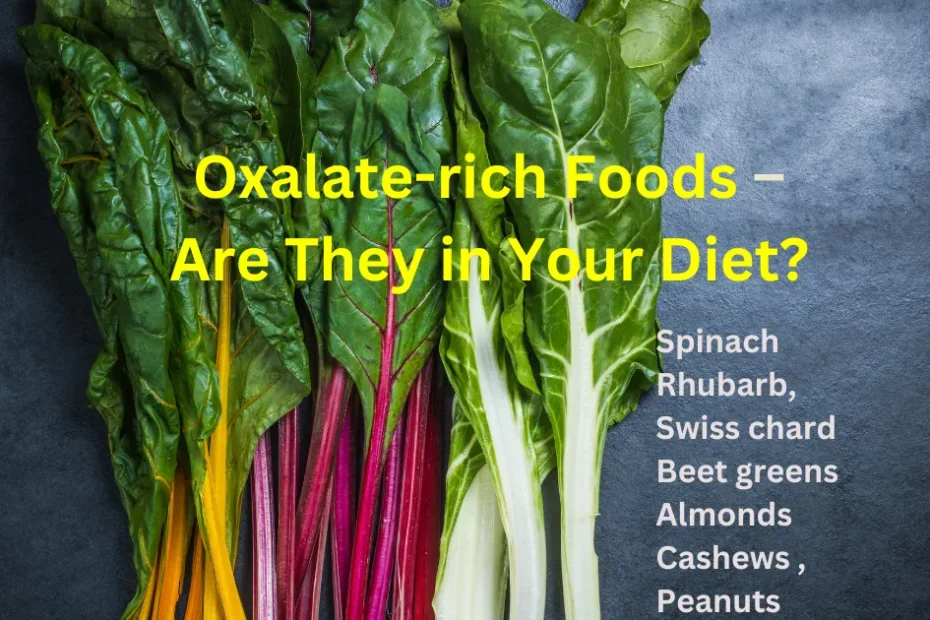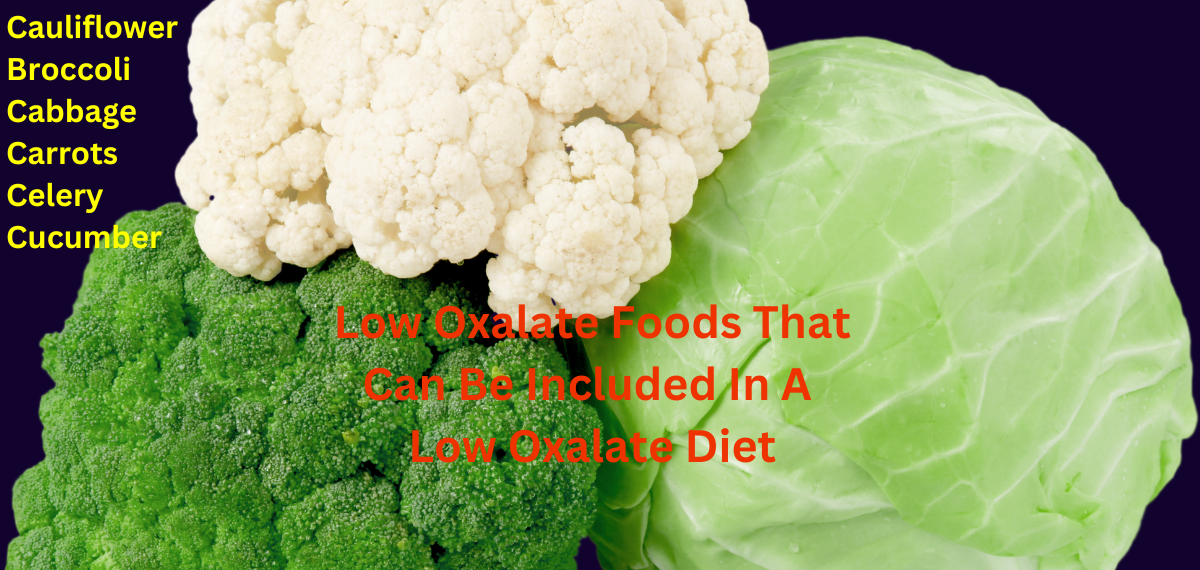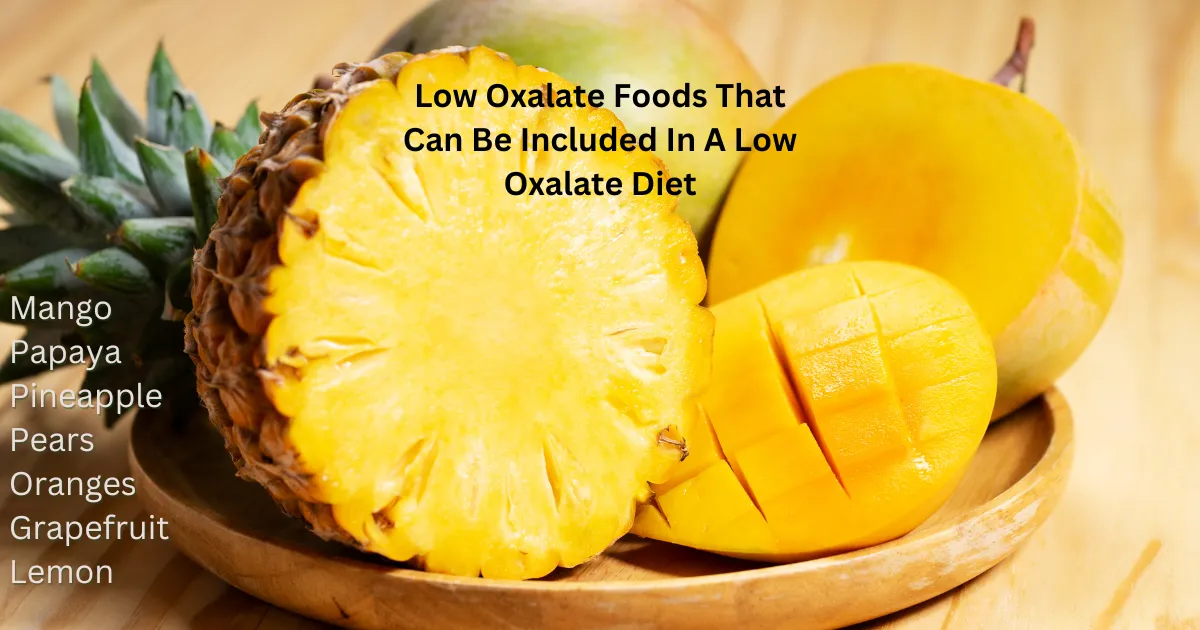Kidney stones are hard deposits that form in the kidneys and can cause significant discomfort. One way to prevent and manage kidney stones is by following a low-oxalate diet. Oxalate (oxalate rich foods), found in many foods, contributes to the formation of certain types of kidney stones.
- Understanding Oxalate: A Guide to Diet and Health
- Oxalate Rich Foods Explained
- Source & Credits:
Understanding Oxalate: A Guide to Diet and Health
Oxalate Sources
To reduce oxalate intake, limit or avoid high-oxalate foods such as spinach, rhubarb, beets, Swiss chard, soy products, nuts, and seeds. Moderate consumption of medium-oxalate foods, such as berries, grapes, and legumes, is also advisable.
Calcium and Oxalate Binding
Consuming foods rich in calcium alongside oxalate-containing foods helps bind oxalate in the gut, preventing its absorption. Good sources of calcium include dairy products, fortified plant-based milks, and leafy greens.
How Oxalates Affect the Body
Oxalates, or oxalic acid, are naturally occurring compounds in many plants. When consumed, they can have several effects on the body, particularly concerning kidney health and nutrient absorption.
Here’s a detailed look at how oxalates affect the body:
Kidney Stones Formation:
- Calcium Oxalate Stones: One of the most common types of kidney stones is composed of calcium oxalate. When oxalates bind with calcium in the kidneys, they can form crystals, which can lead to the formation of kidney stones. High levels of oxalates in the urine can increase the risk of stone formation.
- Pain and Discomfort: Kidney stones can cause severe pain, typically in the back or side, as well as blood in the urine and other urinary symptoms.
Nutrient Absorption:
- Calcium Binding: Oxalates bind with calcium in the gut, reducing absorption. If dietary calcium intake is insufficient, it can lead to a deficiency.
- Impact on Other Minerals: Similar binding can occur with other essential minerals, such as magnesium and iron, potentially affecting their absorption and leading to deficiencies.
Gut Health:
- Gut Microbiota: Some bacteria in the gut, like Oxalobacter formigenes, can degrade oxalates. However, antibiotic use or an imbalance in gut flora can reduce these bacteria, leading to higher oxalate absorption.
- Digestive Issues: High oxalate intake can contribute to digestive problems like irritable bowel syndrome (IBS) in susceptible individuals.
Joint and Tissue Health:
- Crystal Formation: Oxalates can form crystals in other body parts, such as joints, leading to inflammation and pain similar to that of gout.
- Oxalate Deposition: In some rare cases, high levels of oxalates can be deposited in various tissues, leading to a condition known as oxalosis, which can cause widespread tissue damage.
General Health Effects:
- Oxalate Toxicity: In extremely high amounts, oxalates can be toxic and cause symptoms such as weakness, fatigue, muscle cramps, and, in severe cases, kidney failure.
- Sensitivity and Inflammation: Some individuals may be more sensitive to oxalates and experience inflammation or other immune responses upon consumption.
Mindful Eating: Understanding High-Oxalate Foods
Oxalates are present in many plant-based foods, for individuals prone to kidney stones or those with specific dietary needs, awareness and moderation are crucial for maintaining good health.
Why Monitor Oxalate Intake?
Oxalates bind to calcium in the urine, forming crystals that increase the risk of kidney stones in susceptible individuals. They can also impact bone health and interfere with the absorption of essential minerals.
The Role of Calcium in Managing Oxalates
Contrary to popular belief, calcium is not the enemy when it comes to kidney stones—it’s an ally. Consuming calcium-rich foods with oxalate-containing foods can prevent oxalate absorption by binding it in the gut, thereby reducing its impact on kidney stone formation.
Aim to include calcium from sources such as dairy products, fortified plant-based milk, or leafy greens alongside oxalate-rich meals to reduce absorption.
Dietary Guidelines for Managing Oxalates and Kidney Stones
Stay Hydrated: Drink plenty of water throughout the day to maintain a sufficient urine volume and lower oxalate concentration in the urine.
Moderation is Key: While limiting high-oxalate foods, remember that not all foods must be avoided entirely. It’s about balancing your intake and spreading oxalate-rich foods throughout the day.
Portion Control: Pay attention to portion sizes, as consuming large quantities of even low-oxalate foods can increase oxalate intake.
Treatment for Kidney Stones
Other Dietary Factors Influencing Kidney Stones
- Sodium: High sodium intake increases calcium excretion in urine, promoting stone formation. Reduce sodium by avoiding processed foods, canned soups, and fast food. Use fresh ingredients and cook at home when possible.
- Animal Protein: Diets high in animal protein (especially red meat and poultry) can raise uric acid and calcium levels in urine. Incorporate plant-based protein sources, such as legumes, tofu, and nuts, to reduce your risk.
Treatment Options for Kidney Stones
Treatment depends on the stone’s size and location, as well as the severity of the symptoms.
- Small Stones: Often pass naturally with adequate hydration and pain management.
- Larger Stones: May require medical intervention, such as lithotripsy or surgical removal.
Foods to Include in a Low Oxalate Diet
| Food Item | Category | Nutrition Highlights | Health Benefits |
|---|---|---|---|
| Cauliflower | Vegetable | Vitamin C, Fiber | Supports immunity & digestion |
| Broccoli | Vegetable | Folate, Fiber, Vitamin K | Anti-inflammatory & heart-healthy |
| Cabbage | Vegetable | Vitamin C, Antioxidants | Supports digestion & detox |
| Carrots | Vegetable | Beta-carotene, Vitamin A | Boosts eye health |
| Celery | Vegetable | Potassium, Water content | Hydrating & low in calories |
| Cucumber | Vegetable | Hydration, Vitamin K | Cooling & great for skin |
| Green beans | Vegetable | Fiber, Vitamin C | Supports blood sugar balance |
| Lettuce | Leafy Green | Water, Folate | Light, hydrating, and easy to digest |
| Onions | Vegetable | Quercetin, Sulfur compounds | Anti-inflammatory, supports heart health |
| Peas | Legume | Protein, Fiber | Supports satiety and blood sugar control |
| Potatoes (white/sweet) | Starchy Vegetable | Potassium, Vitamin C | Energy source: choose baked or boiled |
| Radishes | Vegetable | Vitamin C, Fiber | Digestive health & detox support |
| Tomatoes | Fruit (vegetable use) | Lycopene, Vitamin C | Antioxidant-rich and heart-healthy |
| Zucchini | Vegetable | Vitamin A, Manganese | Low in carbs, easy to digest |
| Apples | Fruit | Fiber, Vitamin C | Heart and gut health |
| Berries (all types) | Fruit | Antioxidants, Fiber | Anti-inflammatory & blood sugar friendly |
| Grapes | Fruit | Resveratrol, Vitamin K | Supports circulation & heart health |
| Melon | Fruit | Water, Vitamin A | Hydrating & refreshing |
| Mango | Fruit | Vitamin C, Beta-carotene | Supports skin & immune function |
| Papaya | Fruit | Vitamin C, Digestive enzymes | Aids digestion & reduces inflammation |
| Pineapple | Fruit | Bromelain, Vitamin C | Anti-inflammatory & digestive support |
| Pears | Fruit | Fiber, Potassium | Gentle on digestion & heart-friendly |
| Oranges | Fruit | Vitamin C, Folate | Boosts immunity and skin health |
| Grapefruit | Fruit | Vitamin C, Antioxidants | Supports weight and immune health |
| Lemon | Fruit | Vitamin C, Citric Acid | Alkalizing and digestive aid |
| Bananas | Fruit | Potassium, Vitamin B6 | Good for heart and muscle function |
| Cheese (cheddar, mozzarella, feta, brie, camembert) | Dairy | Calcium, Protein, B12 | Supports bone health, high satiety food |
| Milk | Dairy | Calcium, Vitamin D, Protein | Bone strength & muscle recovery |
| Yogurt | Dairy | Probiotics, Protein, Calcium | Gut health & immune support |
Oxalate Rich Foods List: Think Twice Before Eating
| Food Item | Food Group | Nutrition Highlights | Considerations |
|---|---|---|---|
| Spinach | Leafy Green Vegetable | Rich in iron, folate, and vitamin K | High in oxalates; may contribute to kidney stones in sensitive individuals |
| Rhubarb | Vegetable (used like a fruit) | High in fiber and vitamin C | Contains high levels of oxalates |
| Swiss Chard | Leafy Green Vegetable | Good source of magnesium and vitamin A | High in oxalates; best eaten in moderation if prone to kidney stones |
| Beet Greens | Leafy Green Vegetable | High in calcium, iron, and antioxidants | Very high in oxalates |
| Almonds | Nut | High in healthy fats, fiber, and vitamin E | Moderate to high in oxalates |
| Cashews | Nut | Rich in zinc, magnesium, and healthy fats | Contains oxalates; portion control recommended |
| Peanuts | Legume | Protein-rich, high in niacin and folate | Moderate oxalate content; may affect those with sensitivities |
| Soy Products (Tofu, Tempeh) | Plant-Based Protein | Excellent source of plant protein and isoflavones | Some soy products may be high in oxalates; check preparation |
| Wheat Bran | Whole Grain Fiber | High in insoluble fiber and B vitamins | Contains oxalates; can interfere with mineral absorption |
| Bran Flakes | Breakfast Cereal | Good source of dietary fiber | May be high in oxalates depending on the brand |
Oxalate Rich Foods Explained
Oxalates (oxalic acid) are naturally occurring compounds in many plant-based foods. While generally harmless for most people, high oxalate levels can contribute to kidney stone formation in individuals who are sensitive or prone to calcium oxalate stones.
Oxalate rich foods, their nutritional benefits, and lower-oxalate substitutes:
| Oxalate Rich Food | Why It’s High in Oxalates | Nutritional Benefits | Low-Oxalate Alternative |
|---|---|---|---|
| Chocolate | Made from cocoa, which naturally contains high oxalate levels | Rich in antioxidants and magnesium | White chocolate or carob (moderation still advised) |
| Black Tea | Tea leaves are naturally high in oxalates, especially when steeped longer | Contains polyphenols and flavonoids for heart health | Herbal teas like chamomile or peppermint |
| Instant Coffee | Concentrated processing increases oxalate content | Boosts energy, contains antioxidants | Regular brewed coffee (lower oxalate), decaf, or chicory root coffee |
| Sweet Potatoes | High in oxalates, especially in the skin and flesh | Excellent source of fiber, vitamin A, and potassium | Butternut squash or carrots |
| Wheat Bran | High-fiber grain is also rich in naturally occurring oxalates | Promotes digestion, rich in B vitamins | Rice bran, oatmeal, or barley |
| Bran Flakes | Made from wheat bran, processed cereal can concentrate oxalates | High in dietary fiber and iron | Cornflakes or puffed rice cereal (unsweetened) |
Treatment for kidney stones depends on the stone’s size and location, as well as the severity of symptoms. In some cases, small kidney stones can pass on their own with proper hydration and pain management. However, larger stones may require medical intervention.

BMI Index Calculator

Basal Metabolic Rate

Tdee Calculator



